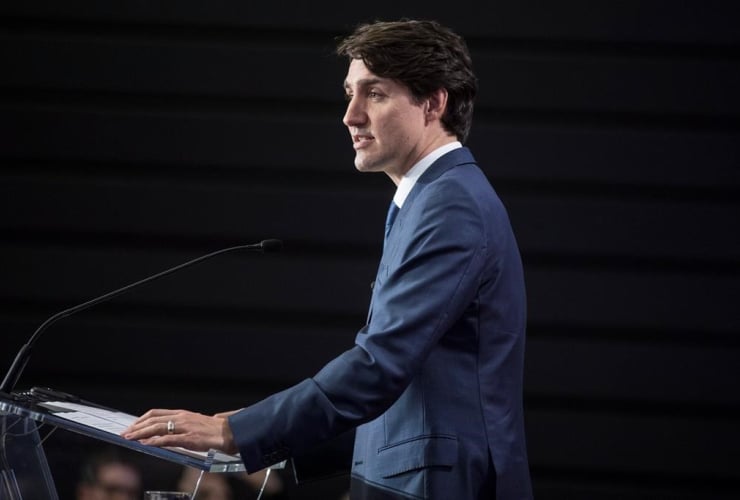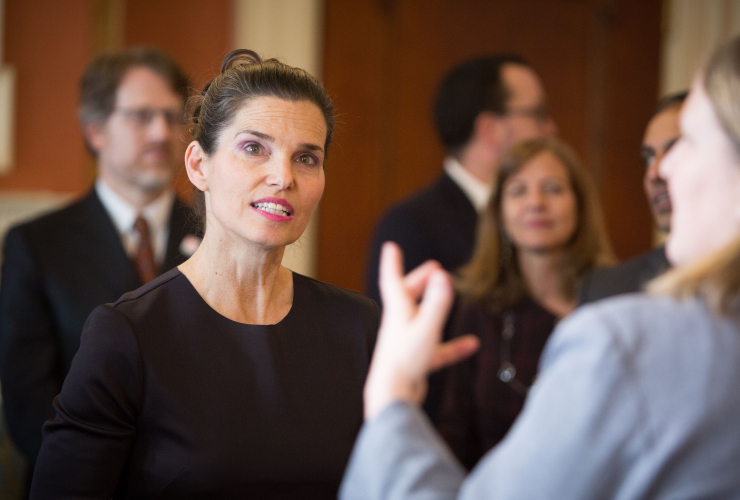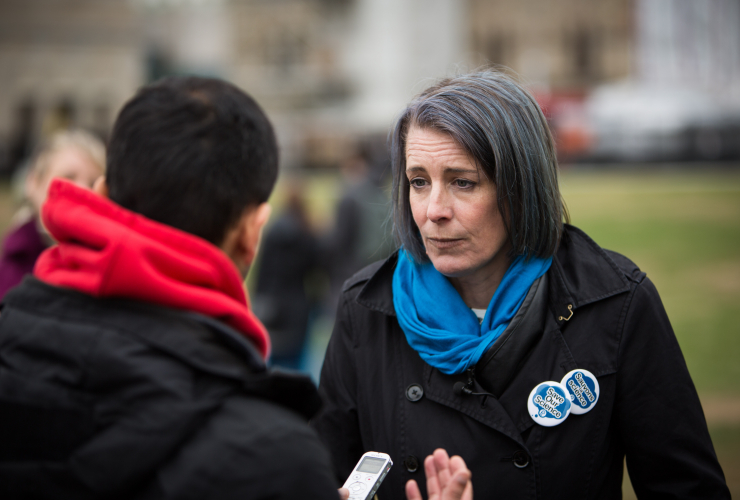The Trudeau government will “continue to work hard” with unions to address concerns of bias against women among government scientists, Science Minister Kirsty Duncan’s office said Thursday.
A report released this week by the union representing professionals and scientists in the federal government presented data showing nearly half of its member scientists and researchers who identify as women believe gender bias is blocking their career goals.
The report from the Professional Institute of the Public Service of Canada (PIPSC) also showed that women under 30 in public sector science who were surveyed were twice as likely as older members to think men receive better treatment.
In addition, one in four believed men are favoured when opportunities arise for leadership positions.
Duncan’s office said Thursday that the minister would build on the “successful work” of the federal government’s task force on diversity and inclusion, which released its own report in December on issues such as bias, discrimination, harassment and cultural awareness in the workplace.
“We will continue to work hard with public sector unions to attract, develop and retain the range of talented and diverse people, including female scientists, that we need to deliver better results for Canadians,” Duncan spokeswoman Ann Marie Paquet wrote in an email.
The government's task force found that 73 per cent of public service respondents identified bias as a barrier to diversity and inclusion in the workplace — the top result.
When its conclusions were released, Treasury Board President Scott Brison said they would help build a federal workplace “that reflects the people it serves."
In response to PIPSC’s report, Brison’s spokesman Jean-Luc Ferland acknowledged there was “more work to be done.”
He also pointed to a tweet by Michael Wernick, the clerk of the Privy Council, that drew attention to a 2017 study by the research group Global Government Forum. The group said Canada has the highest proportion of female senior civil servants in the G20, at 46.4 per cent.
“Today, 46 per cent of federal deputy ministers and 44 per cent (of) Governor in Council appointments are women,” Wenick tweeted on March 7.
The PIPSC report noted that, while there was greater equality between men and women at the most senior positions of some science groups in the public service, it was less so in middle management.
In general, it found that women are “under-represented” in government across core science groups. For two key researcher units, it found that there were lower numbers of women than in the workforce.
“Why are women and men almost equally represented in the highest ranks of some science groups, while positions mid-level and below still show major gaps?” the report reads.
The union called for “new or better workplace legislation” that would build on the federal Employment Equity Act and address “informal workplace practices.”
Finance Minister Bill Morneau — who unveiled a budget last month that used gender-based analysis and committed to pay equity legislation for sectors that are federally regulated — said Wednesday that Canada “can do better” in closing the gender gap in workforce participation and pay.
Duncan’s office pointed to the budget’s science and innovation funding commitments totalling $6.6 billion, saying it will help tens of thousands of researchers and “ensure our research community includes more women,” as well as Indigenous and other underrepresented people.
“Whether by reinstating the long-form census, re-establishing the chief science advisor position or forming the first gender-balanced Cabinet in Canadian history, science, evidence-based policy and gender equality have been guiding principles of our government,” said Paquet.





Comments